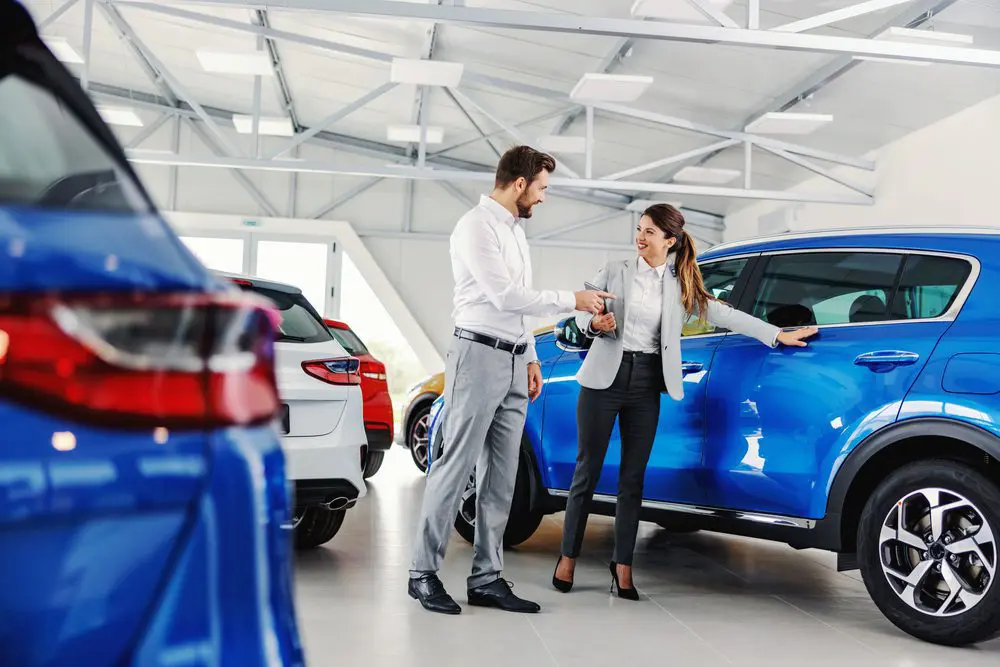In the ever-evolving landscape of the automotive industry, dealership trends play a pivotal role in shaping consumer experiences, driving sales, and fostering innovation.
As technology advances and consumer preferences shift, auto dealerships must adapt to stay ahead of the curve. From digital transformation to changing consumer behaviors, a myriad of factors are influencing the way dealerships operate today.
In this article, we delve into the latest trends shaping the auto dealership industry, providing insights into how dealerships are navigating these changes and what the future holds.
Digital Transformation
The digital revolution has fundamentally transformed the way consumers research, shop, and buy vehicles.
Auto dealerships are no exception to this trend, with many embracing digital technologies to enhance the customer experience and streamline operations.
From online inventory browsing to virtual test drives, digital platforms are empowering consumers with more information and options than ever before.
Moreover, the rise of e-commerce in the automotive sector has led to the emergence of online-only dealerships, challenging traditional brick-and-mortar establishments.
Companies like Carvana and Vroom have disrupted the market by offering a fully digital car-buying experience, from browsing to financing to doorstep delivery.
While traditional dealerships may not be going extinct anytime soon, they must adapt to the digital age to remain competitive.
Emphasis on Customer Experience
In today’s hyper-competitive market, providing exceptional customer experiences is paramount for auto dealerships.
From the moment a customer walks through the door to post-purchase service, every interaction shapes their perception of the brand.
Dealerships are investing in training programs, technology solutions, and streamlined processes to ensure that every touchpoint exceeds customer expectations.
Personalization is also playing a significant role in enhancing the customer experience. By leveraging data analytics and customer relationship management (CRM) systems, dealerships can tailor their marketing efforts and communication strategies to individual preferences and behaviors.
Whether it’s sending targeted promotions or offering customized product recommendations, personalization fosters stronger relationships and drives customer loyalty.
Shift Towards Electric and Autonomous Vehicles
The automotive industry is undergoing a significant transformation with the rise of electric and autonomous vehicles.
As consumers become more environmentally conscious and interested in cutting-edge technology, demand for electric and autonomous vehicles is on the rise.
Auto dealerships are adapting to this shift by expanding their offerings to include electric models and investing in training programs to educate staff on the intricacies of these new technologies.
Moreover, partnerships between traditional automakers and tech companies are driving innovation in the autonomous vehicle space.
Dealerships are positioning themselves as hubs for testing, showcasing, and selling these cutting-edge vehicles, catering to early adopters and tech enthusiasts.
As electric and autonomous vehicles become more mainstream, dealerships that embrace these trends early on stand to gain a competitive advantage in the market.
Subscription and Mobility Services
The concept of car ownership is evolving, with an increasing number of consumers opting for subscription-based and mobility services instead of traditional ownership models.
Whether it’s leveraging digital technologies to enhance the customer experience, embracing electric and autonomous vehicles, or diversifying revenue streams through subscription and mobility services, dealerships that stay agile and innovative will thrive in an ever-changing landscape.
Companies like Volvo, Porsche, and BMW offer subscription services that allow customers to access a fleet of vehicles for a monthly fee, eliminating the hassle of ownership while providing flexibility and convenience.
Auto dealerships are tapping into this trend by launching their own subscription and mobility services or partnering with existing providers.
By diversifying their revenue streams and catering to changing consumer preferences, dealerships can future-proof their business models and stay relevant in a rapidly evolving market.
Focus on Sustainability and Corporate Social Responsibility
In recent years, there has been a growing emphasis on sustainability and corporate social responsibility (CSR) across industries, and the automotive sector is no exception.
Whether it’s leveraging digital technologies to enhance the customer experience, embracing electric and autonomous vehicles, or diversifying revenue streams through subscription and mobility services, dealerships that stay agile and innovative will thrive in an ever-changing landscape.
Auto dealerships are increasingly incorporating sustainable practices into their operations, from implementing energy-efficient technologies in showrooms to offering eco-friendly vehicle options.
Moreover, dealerships are actively engaging in CSR initiatives to give back to their communities and demonstrate their commitment to social and environmental causes.
Whether it’s sponsoring local events, supporting charitable organizations, or implementing recycling programs, dealerships are leveraging their resources and influence to make a positive impact beyond the showroom floor.
Conclusion
In conclusion, the auto dealership industry is experiencing a period of profound transformation driven by digitalization, changing consumer behaviors, and technological advancements.
By embracing these trends and adapting to evolving market dynamics, dealerships can position themselves for success in the years to come.
Whether it’s leveraging digital technologies to enhance the customer experience, embracing electric and autonomous vehicles, or diversifying revenue streams through subscription and mobility services, dealerships that stay agile and innovative will thrive in an ever-changing landscape.






